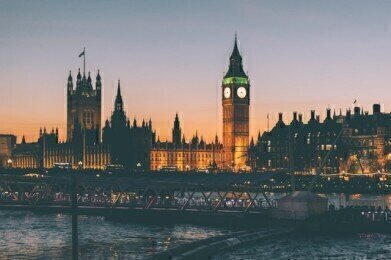Air Monitoring
Could London Become the World's Greenest Capital?
Sep 20 2017
Business, culture, politics – London is a leading capital in so many ways. Unfortunately, its environmental reputation isn’t one of them. Heavy traffic flows through the city each and every day, churning out carbon monoxide, nitrogen dioxides and particulate matter in abundance.
With that considered, the idea of it becoming the greenest capital in the world surely seems absurd. What if you take ‘green’ in a more literal sense though? Read on to see how London is on its way to a green future.
The green grass of… London
Despite its reputation as the “big smoke”, London actually has an impressive number of green spaces for a city of its size. The capital has over 170 square kilometres of parks – equating to around 40% of its area. Regent’s Park, St James’s Park and of course Hyde Park are just three of the most central green spaces, with many, many more dotted around the rest of the city.
Even better, there are plans to make London a National Park City. Not heard of it? Of course not, London will be the first in the world. It would mean the majority of the city would be green – with 50% targeted by 2050. New trees, rooftop gardens and enhanced protection for the Green Belt would add to the already impressive city parks.
Painting the town green
In the first step towards this ambitious plan, Labour’s London Mayor Sadiq Khan has created a £9 million Greener City Fund to improve green spaces and boost tree planting around the city. Local groups can already apply for the first £1 million of grants, which can be used for anything from tree planting to river cleaning projects.
The plans, if successful, will boost more than just the appearance of the city. Incorporating more plants and greenery into the cityscape will also improve the air in the centre. Trees absorb a range of pollutants like nitrogen oxides, as well as filtering out some particulate matter which becomes trapped on leaves and bark.
Long term effects
It’s also hoped that making London’s spaces greener will encourage more walking and cycling. In an ongoing ‘cycle’ of positive effects, it’s thought people will be more likely to ditch the car for a stroll or cycle to work if their surroundings are more appealing. These small changes could further boost the city’s air.
Interested in greener environments and cleaner air? The article ‘Growing Market for CEMS in Developing Countries’ explores how emissions can be better managed and monitored during the significant growth of developing economies.
Digital Edition
IET 34.2 March 2024
April 2024
Gas Detection - Biogas batch fermentation system for laboratory use with automatic gas analysis in real time Water/Wastewater - Upcycling sensors for sustainable nature management - Prist...
View all digital editions
Events
Apr 22 2024 Hannover, Germany
Apr 22 2024 Marrakech, Morroco
Apr 23 2024 Kuala Lumpur, Malaysia
Apr 23 2024 Kintex, South Korea
Apr 23 2024 Edmonton, AB, Canada


















